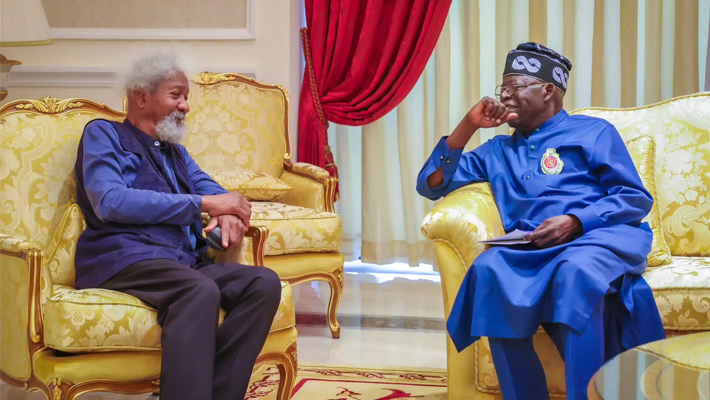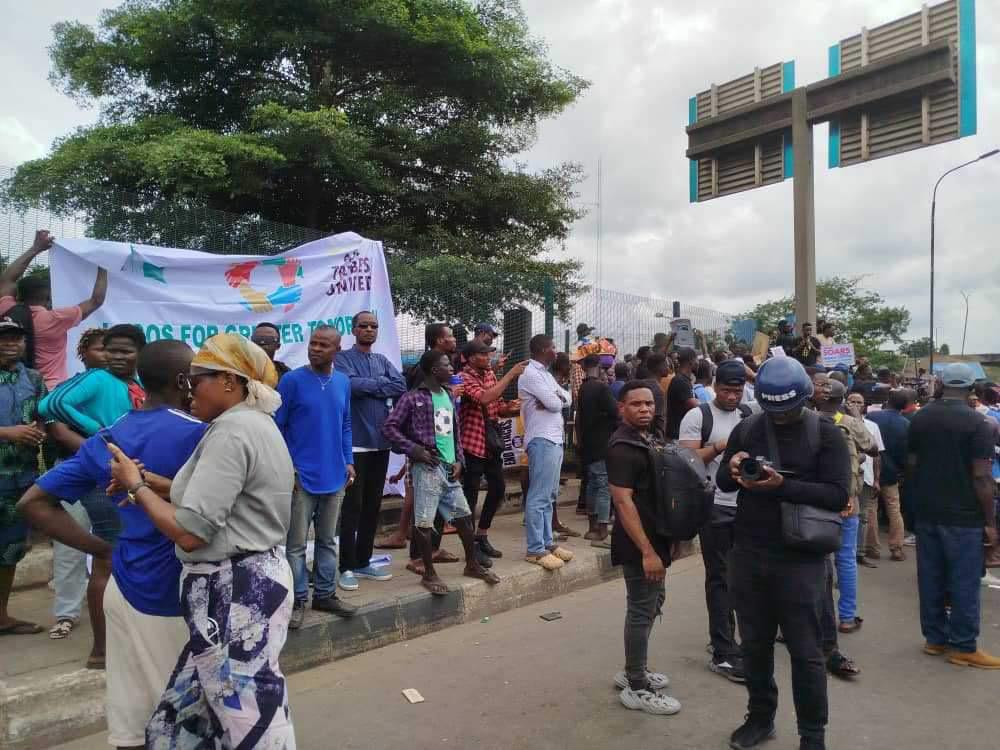
The announcement that the Tinubu administration may target Nigerians living abroad for allegedly sponsoring riots and violence has elicited strong reactions on social media and from human rights activists.
Many Nigerians on platforms like Twitter and Facebook expressed outrage, labeling the move as a repressive tactic to silence dissent. They argue that it reflects an unwillingness to address the underlying issues causing unrest, such as economic hardship and poor governance. Users have shared their frustration, pointing out that instead of introspection, the government is resorting to intimidation and scapegoating its citizens abroad.
Prominent human rights activists have also voiced their concerns. Nobel laureate Wole Soyinka criticized the administration’s approach, cautioning that such heavy-handed tactics could exacerbate the situation and lead to more unrest. He emphasized the need for a more empathetic and less confrontational strategy in dealing with protesters who are merely voicing their legitimate grievances about governance and living conditions in Nigeria.
Additionally, international human rights organizations have started to monitor the situation closely. Amnesty International has called for a thorough investigation into any actions taken against Nigerians living abroad, warning against human rights violations and emphasizing the importance of upholding democratic principles and freedom of speech.
These reactions highlight a significant disconnect between the government’s actions and the expectations of both local and international communities, underscoring the importance of addressing the root causes of dissent rather than targeting those who speak out against perceived injustices.
Bayo Onanuga has unveiled the face of official dictatorship. He recently retweeted a statement from the Comptroller-General of the Nigerian Immigration Service (NIS), Kemi Nandap, indicating that the government plans to arrest Nigerians living abroad who are alleged sponsors of the riots, burning, and looting in Nigeria’s major cities.
As someone who has been on the government’s watchlist for the past 14 years due to my writings, this feels like condemning a suspect with a swift stroke of a sharp sword. It is disheartening that failed regimes always look elsewhere to assign blame instead of introspecting on how their politics and policies affect the majority of Nigerians.
The Tinubu administration appears to be borrowing a page from the Abacha rulebook. It seeks to avoid any challenge to its authority and disregard any hardship it imposes on the nation. Tinubu, who once benefitted from criticizing bad governance, now wants to silence critics, especially those living abroad. But Nigeria will not let him.
Considering the almajirai in Kano or elsewhere in the North calling on the military or Russia to take over, there is no one in the democratic Global North who would sponsor such a call. The area boys in the South don’t need foreign sponsors to loot their neighbors or people they see as foreigners in their own locale. The First Family’s past politics and post-electoral maneuvers have already set the stage for such unrest.

No Nigerian living abroad wants to be seen as supporting the destabilization of their homeland. The reason is simple: to maintain their status (unless they are citizens), they must demonstrate a commitment to democratic ideals. This is not just a paper declaration; most countries in the Global North have the means to fact-check this and ensure that those who violate these principles are held accountable and deported.
While I am not surprised by this turn of events, it is shameful that Tinubu, who has experienced this kind of stereotyping, would embrace it so openly barely a year into his presidency. The real sponsors of violence before these riots are well-known, and most would not return home unless kidnapped or forcibly brought back.
It would be tragic if Nigerians living abroad no longer had the freedom to return home simply because they criticize the government’s mismanagement. Wherever we are, we must not be deprived of our inalienable rights as Nigerians to:
a) criticize our government,
b) contribute to changing bad governance,
c) visit or return home whenever necessary.
Many of us have citizenship in other nations and hold other passports, which state Nigeria as our country of birth. Even if we do not live in Nigeria, we are still connected to its affairs and have the right to visit or return. Tinubu must be held accountable to international laws, which Nigeria is a signatory to, if people start disappearing from airports under the guise of determining who is sponsoring riots or supporting looting.
This obsession with native foreigners is becoming a poor excuse for a regime failing its duties to the people. Recently, the regime claimed some civil servants were collecting salaries while living abroad but provided no evidence or details. The real issue, Mr. President, is not caused by foreign instigators. The problem is that the policies you inherited and uphold are making life unbearable for the majority of Nigerians. The enlightened among them are protesting to draw attention to this, and the solution is simple: reverse these harmful policies. If you fix Nigeria as you promised, many of those you are hunting would return home to contribute to their motherland’s development.
Personally, I don’t feel threatened because I don’t have the resources to destabilize Nigeria. These shenanigans must stop. Tinubu has spent 38 years (according to his biographers) to reach Aso Rock. Now that he is there, he should focus on changing the country’s trajectory instead of searching for non-existent threats. The real usurpers of democracy are insecurity, hunger, unemployment, social dislocation, and despair. Fix these issues, and Nigeria will rise again. Continue making excuses for your failures, and you risk the disintegration of a potentially great country.
As for Ms. Nandap, this is not the way to make your mark in Nigeria’s history books or earn respect as a leader. Don’t take the bait

